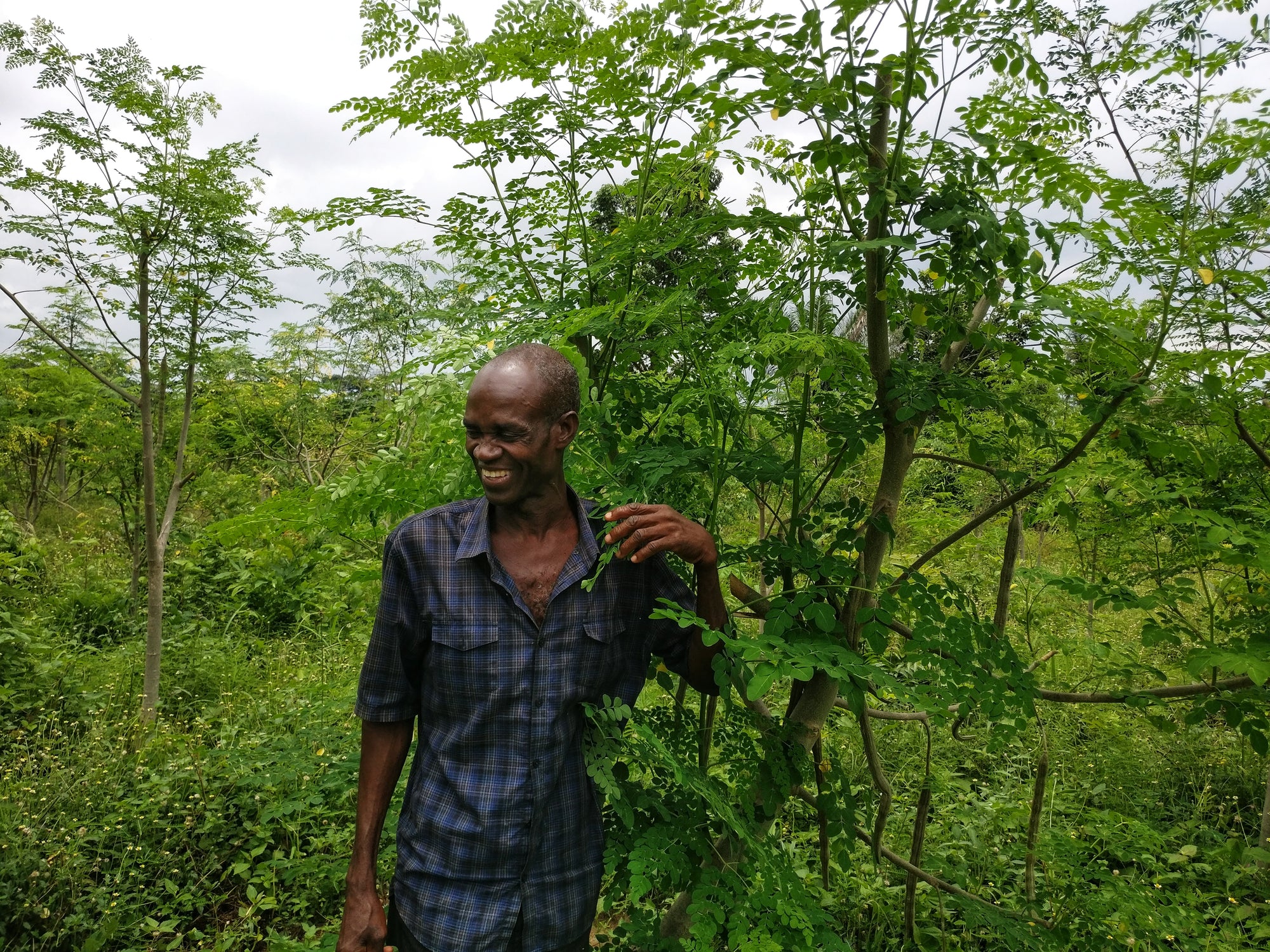



Stories from the Field: A Day in the Life of a Fishing Village
Stories from the Field is a series run by our Impact Monitoring and Evaluation Specialist, Giulia, to give you an in-depth look at the farming communities we serve, the places we visit, and the supply chain that creates True Moringa oil for conscious consumers like you. Use code SETH for 20% off your order.
We are 7, sitting on benches in an attempted circle. It’s a breezy and humid day. The air smells of fish, fried ginger, onions and chili. The shade made of dry palm leaves gives us a break from the scorching sun. The village is quiet, and everything is still, like a scene taken from a photography book. “Everyone's gone to do their thing’” says the chief. Children are in school while women are off to clean the catch fishermen brought ashore early morning, preparing to fry or sell them. I am the only woman in the group. We will go through the traditional process. Our field agent Augustine introduces us to the chief, explaining the purpose of the visit. The chief already knows us well, he’s among one of the contracted moringa farmers we have been working with since 2016 planting season. However, courtesy demands we follow the tradition: after the introduction, the greetings and the offering of drinking water, each group respectively enquires about the family, health and work of the other. They shift between 2-3 local languages, according to the fluency of each of us. Ghana with its over 250 languages and dialects. I listen to the buzzing words I cannot give a meaning to, while I wonder how words and concepts cannot get lost in translation, but especially how it is possible that the average Ghanaian speaks at least 2 local languages in addition to English.

I look around distracted and observe the houses, the fish traps hanged to the walls, the animals roaming here and there. The village of Sakakyire only counts a few dozens souls that primarily engage in fishing in the Volta lake, a few hundreds meters away. Meanwhile, the discussion between the farmers and our supply chain continues. George, the supply chain manager, is eager to listen to all their struggles and issues and diligently takes note of their suggestions and feedback. Seth, the assemblyman for Sakakyire leads the conversation from the farmers’ side.
Our contracted farmers here engage solely in growing moringa for seed production. Once the pods are dry, seeds are harvested and sent to Accra in order to extract the oil. Seth and the others share with us well known problems: the maintenance of the farm is labour intensive, especially when it comes to weeding. Additionally moringa is normally kept as a backyard tree, and not grown intensively. The farmers of Sakakyire only took up its cultivation in 2016 and need constant support and consultation on the best practices to reach profitable levels of production. Unfortunately inefficient or non existent roads aggravate the situation and cut the village out from trade and economic networks.

We dive into elephant grass to visit and estimate the conditions of their farms. They have some news to share with us. Seth is proud to show what he experimented in his moringa farm. We walk pass the new plot where the trees barely reach 2 months of age and we arrive to the older farm. One of the tree lines stands out. It is lusher, and the trees there are almost twice the size of the others in the same plot. He tells us how he started using organic fertilizer to see if he could boost production. We measure the size of the farms with the GPS, search for potential infestations, evaluate the conditions of the trees and give some recommendations to improve the production and maximize the next harvest.

We leave the same way we came, on foot following small trails in the lush vegetation. Once in awhile, we cross paths with someone from the opposite direction, a small movement of the head or the hand to greet. No need to share any word. It is already obvious that we are alien to the area. By evening everyone will know who we are, the reasons that brought us there, the kind of news we brought. Life tomorrow will flow the same way: fishing and farming, the routine that articulates each day in Sakakyire.






